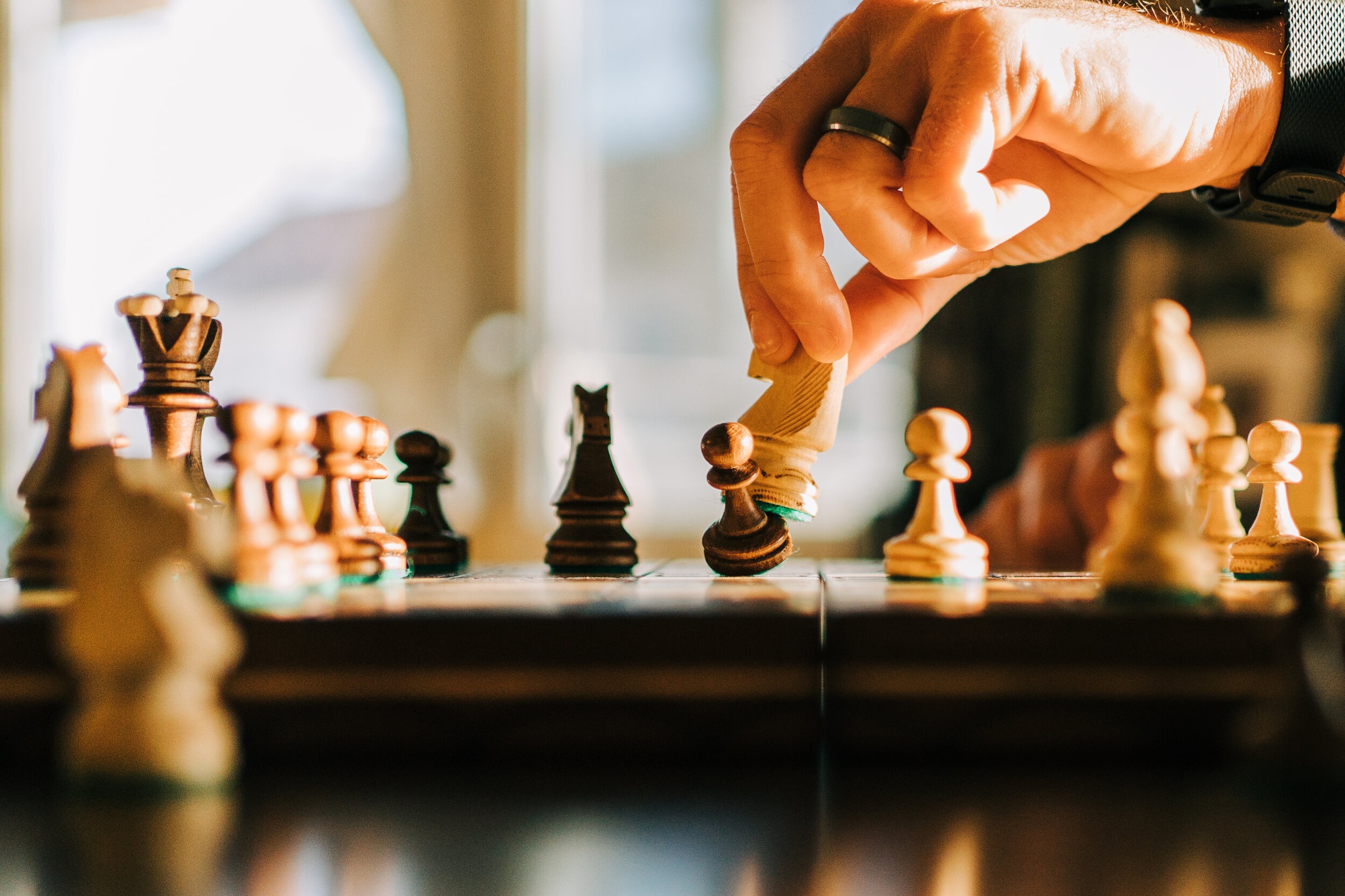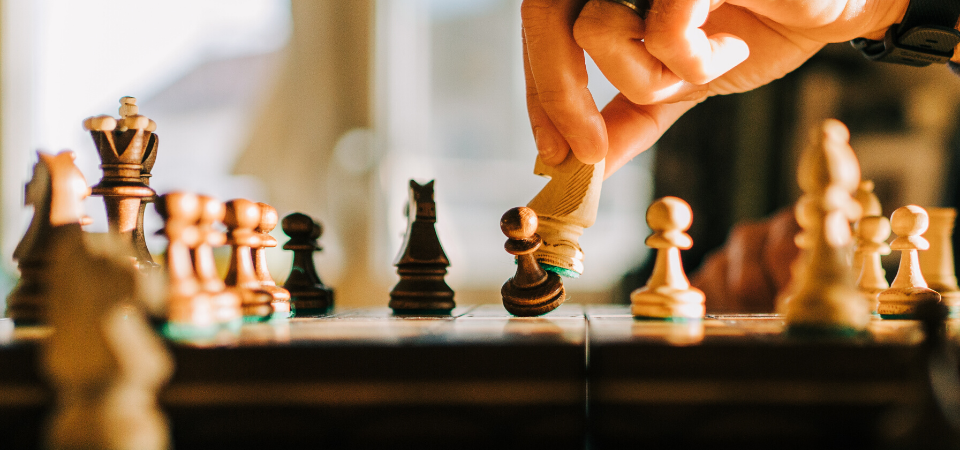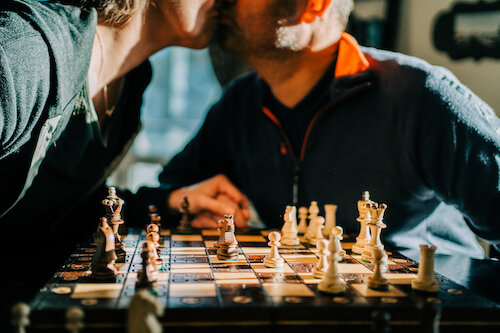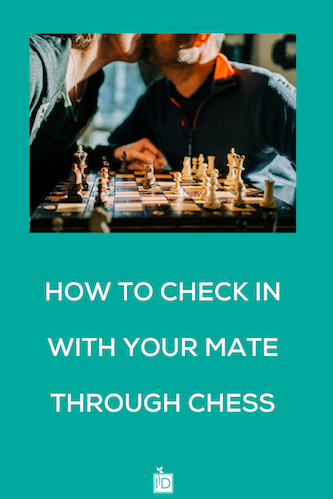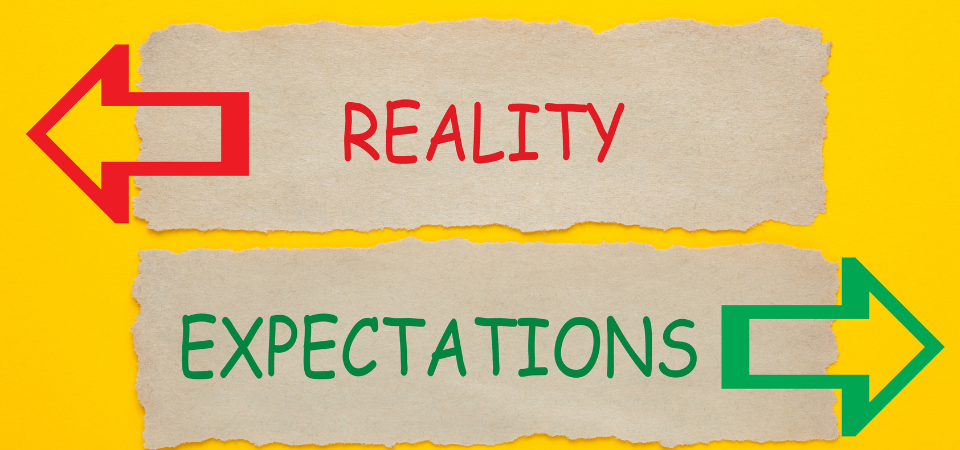Chess is a game of hand-to-hand combat and anticipation.
My husband Seth and I have entered a season in our marriage when we have more time to notice each other. The kids are a little older but still mostly dependent on us, and date night conversations still tend to slide back to the kids. At the end of the day, after the battle of bedtime, we slip into the comforts of our separate couches and our Facebook feeds and Netflix sitcoms until one of us falls asleep.
I realized that we needed a new way to reconnect now that we are out of the new parent fog. Our time together is valuable because it is rare, with his frequent TDYs and my weekends at work. I wanted to find something to bring us together in a new way and strengthen our healthy marriage, and in the end I chose chess.
WHY CHESS?
Over Christmas I read an excellent book called The Girl He Used to Know by Tracey Garvis Graves. In this book, the two characters meet and fall in love while playing each other at their college chess club meetings. They learn so much about each other just by playing chess—no talking required. As I read this book, I thought chess might be a fascinating way for us to strengthen our communication and exercise our minds in a new way.
A chess board is relatively cheap, we got ours for $35, and you can play at home. As an added bonus, you can play chess long distance. Seth is on orders to Honduras and he can play on his board and I can play on mine and we text each other our daily moves! You can also go totally virtual and play chess online.
WHAT WE HOPED TO ACHIEVE
At the very least we hoped to learn a new skill. Let’s face it, making a school lunch every morning is a pretty dull task. I needed something new to engage my brain and fire off parts of my mind that had been collecting dust. Chess offers a new way to be strategic about problem-solving and teaches creativity within a very specific set of rules.
I also wanted a new way to spend time with my husband using something that required focus and dedication, but nothing too daunting. It needed to be fun! I wanted to learn something new together and to have something new that was ours. I was hopeful that I would also learn something new about Seth in how he approached competition and strategy. And maybe, like the characters in the book, we would learn a new way to communicate that would maybe turn into a passion.
THE RESULTS
…you need to know when it is better to give than receive.
The basic elements of chess are not so different from that of a healthy marriage. In chess, as in relationships, maneuvering is easier when you have space. However, you must always be mindful of where your opponent is, your anticipated next move, and how your opponent might respond. We realized that giving each other space didn’t need to mean the exclusion of the other. But, we must pay attention to the space being occupied as well as have a more mindful awareness of our own ability to move.
In chess, you cannot pass on your turn. If it is your turn, you have to make a move. Development is a crucial element to the game—there is no inaction. In a relationship too, not all moves are equal but both partners must contribute to the game for it to work. Moves that are made without consideration of the other person’s space often lead to regret. Chess helped us realize that our moves have the power to change the game and that not doing anything stalls it out and could cause the other player to get up and leave.
Chess is a game of strategy. You have to think many moves ahead and you have to understand your opponent enough to know how they will respond to your moves. Sometimes part of the strategy is to make sacrifices. In chess and in relationships, you need to know when it is better to give than receive. Sometimes you have to sacrifice your bishop to position your rook two moves down the road for a checkmate. Sometimes you have to let him choose the restaurant so that you can pick the movie you actually want to see!
Finally, chess is a game of hand-to-hand combat and anticipation. It is critical that you can guess how the other will play. The better you know your opponent, the better the game will go. It’s brutal and blindsiding and you learn something new every game. It’s played in close quarters and you can watch the other make their moves. Chess brings out things in your opponent that you have never seen before—some impressive and others surprising. And if you don’t put up your arm to block him, you will get hit in the face. Marriage isn’t this intense physically, but in stressful situations I tend to learn something about my partner that I didn’t know before. When both his grandmothers died in one year I wasn’t anticipating his reaction and I failed him. When a year of non-stop TDYs came crashing down on me, he didn’t expect me to respond the way I did and then he wasn’t able to help me.
How well do you know the other player? What pieces does he tend to move first? What pieces does she tend to protect the most? What techniques does he take the most risks with? Where does she exercise the most caution? Does her strategy look the same each time? Does he like to throw curve balls? Does she go straight for the king? How well can he leverage the power of the pawns?
The most valuable thing that has come from this has been taking the time to notice my partner. I wanted to win so I thought about my moves and how he would respond to them. I thought two and three steps ahead and really looked at the board and the pieces to see how it could all turn out. I noticed how he prioritized pieces and I noticed what he didn’t notice! I would watch him as he thought about his next move.
Like marriage, a successful chess game has development, awareness of space, sacrifice, and lots of understanding. There are rules and strategies. For us chess became a way to connect. It is now something we can do together separate from the kids and daily responsibilities. It gave us a new commonality to explore and grow. We learned the game together and now we play together. It awakened our minds and exercised our brains. It brought us closer together in a way that we couldn’t get just through date nights or watching Netflix together. The element of healthy competition added a lot of fun to the game as well!
RESOURCES
Chess for Dummies by James Eade
ABOUT JENELLE
Jenelle Botts is a storytelling branding photographer for small business owners and solopraneurs. She is an Army vet, military wife, and mom of two. When she’s not behind the camera, Jenelle is writing about her feelings, making hilarious jokes, and putting her husband in checkmate.
